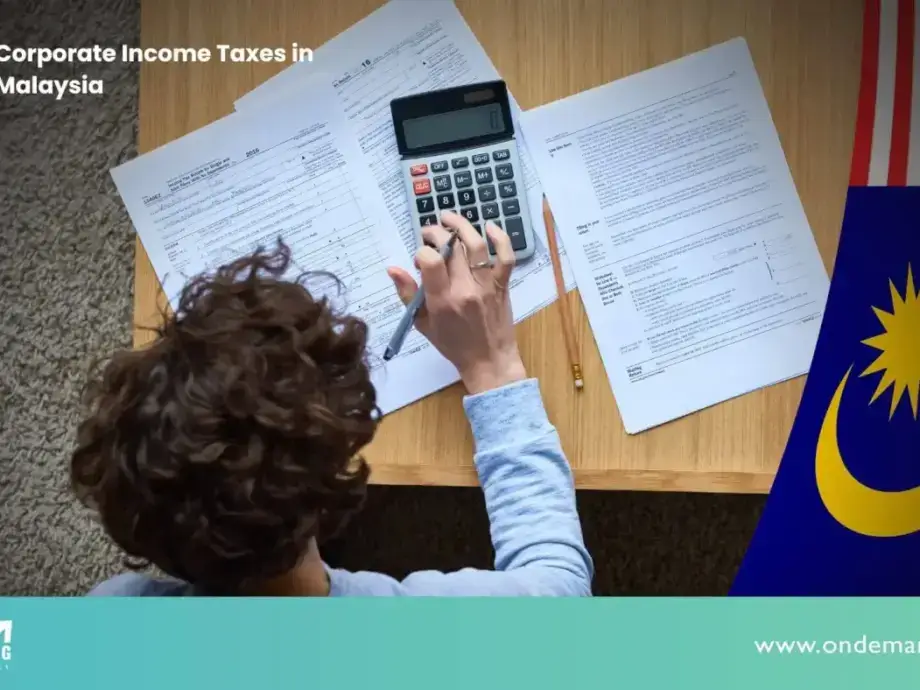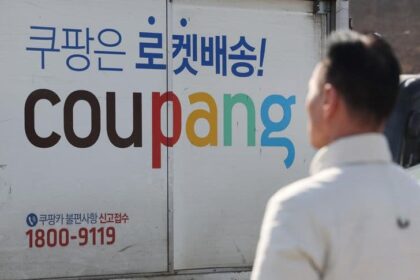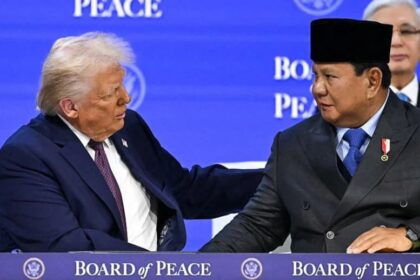Why Malaysian Business Groups Are Urging a Delay to the SST Expansion
Malaysia is on the cusp of a significant tax policy shift. On July 1, 2025, the government will implement an expanded Sales and Service Tax (SST), including a new 8% levy on commercial rental and leasing services. This move, announced as part of Budget 2025, is intended to strengthen the country’s fiscal position and broaden the tax base. However, the policy has triggered a strong and unified response from the nation’s leading business associations, who warn that the timing and scope of the tax could have far-reaching negative consequences for businesses, consumers, and the broader economy.
- Why Malaysian Business Groups Are Urging a Delay to the SST Expansion
- Business Community’s Concerns: Inflation, Costs, and Economic Recovery
- Government’s Rationale and Response
- Comparing SST and GST: The Debate Over Tax Reform
- Business Groups’ Proposals and Demands
- Broader Economic Implications: Inflation, Jobs, and Consumer Confidence
- In Summary
Six major business groups—the SME Association of Malaysia, Malaysia Retail Chain Association, Malaysia Retailers Association, Federation of Malaysia Business Associations, Bumiputra Retailers Organization Malaysia, and Malaysia Shopping Malls Association—have issued a joint statement urging the government to defer the SST expansion. Their concerns center on the 8% tax on commercial rentals, which they argue will exacerbate inflation, shrink consumer spending, discourage investment, and threaten the survival of many small and medium enterprises (SMEs).
What Is the SST Expansion and Why Is It Controversial?
The Sales and Service Tax (SST) is Malaysia’s primary indirect tax system, replacing the Goods and Services Tax (GST) in 2018. Unlike GST, which is a value-added tax allowing businesses to claim input tax credits, SST is a single-stage tax applied at either the manufacturing or service provision level. The lack of input credits under SST means that tax can cascade through the supply chain, potentially leading to higher costs for businesses and consumers.
The 2025 expansion of SST includes:
- An 8% service tax on commercial rental and leasing services (excluding residential housing and certain other exemptions).
- Broader coverage of services, including construction, finance, private healthcare, education, and beauty.
- Revised sales tax rates of 5% or 10% on selected non-essential goods, while essential items remain zero-rated.
While the government argues that these changes are necessary for fiscal sustainability and will not burden the majority of Malaysians, business groups contend that the policy is being introduced at a time when companies are already struggling with rising costs and economic uncertainty.
Business Community’s Concerns: Inflation, Costs, and Economic Recovery
At the heart of the business groups’ opposition is the fear that the new 8% SST on commercial rentals will significantly increase operating expenses for SMEs and retailers, many of whom lease their premises. With businesses already facing higher minimum wages, increased fuel and electricity prices, reduced subsidies, mandatory e-invoicing, and a weakening ringgit, the additional tax burden could be the tipping point for many.
Stan Singh, council member of the Malaysia Retail Chain Association, explains the likely impact:
“Eventually cost increases will be passed to consumers. Businesses are no longer in a position to absorb escalating expenses, and the burden will be passed along the supply chain.”
Industry leaders warn that the tax could force businesses to downsize or close, leading to job losses and a slowdown in domestic economic activity. The cascading nature of SST, without input tax credits, means that costs accumulate at each stage of the supply chain, further amplifying the inflationary effect.
Retailers, in particular, are sounding the alarm. The Malaysia Retailers Association (MRA) has called for a complete waiver of the 8% SST on commercial rentals, or at minimum, a deferral until macroeconomic and geopolitical conditions stabilize. They argue that rental is one of the largest fixed costs for businesses, and the new tax will push many to pass costs onto consumers, intensifying the cost-of-living burden.
Sectoral Impact: Retail, Logistics, Manufacturing, and More
The expanded SST is not limited to retail. Other sectors affected include logistics, manufacturing, healthcare, education, and construction. Each faces unique challenges:
- Retail: Higher rental costs threaten business sustainability, especially for small and independent retailers.
- Logistics and Manufacturing: Increased costs may erode export competitiveness, particularly for SMEs integrated into global value chains.
- Healthcare and Education: New service taxes could raise costs for private providers, with potential knock-on effects for consumers.
- Construction: A 6% service tax on commercial and industrial construction work may increase project costs and impact contractors.
These concerns are compounded by global economic uncertainty, including geopolitical tensions and potential trade disruptions, which have already affected regional confidence and commodity prices.
Government’s Rationale and Response
The government maintains that the SST expansion is essential for fiscal consolidation and to ensure the sustainability of Malaysia’s social safety net. Prime Minister Datuk Seri Anwar Ibrahim and the Finance Ministry have emphasized that the expanded SST is targeted, with essential goods and services remaining exempt or zero-rated. The policy is also designed to broaden the tax base, as Malaysia has one of the lowest tax-to-GDP ratios in the region.
Muhammad Kamil Abdul Munim, political secretary to the Prime Minister, addressed public concerns:
“This might not be the perfect policy. But if there are segments or sectors that require reconsideration, I believe the government will look into those concerns seriously. This is not divine law, it’s human legislation. So, there’s no issue if adjustments or improvements are needed. What’s important is that the majority of the people are not burdened by this expansion.”
The Finance Ministry has also clarified that:
- Essential goods such as local fruits, rice, wheat, sugar, salt, and cooking oil remain exempt from sales tax.
- Micro, small, and medium enterprises (MSMEs) with annual turnover below RM500,000 are exempt from the new service tax on rentals.
- Business-to-business (B2B) transactions and certain relief groups are exempted to avoid double taxation.
- Non-reviewable contracts are granted a 12-month exemption from the effective date.
To ease compliance, the government will not impose penalties on companies working to meet registration and reporting requirements by December 31, 2025.
Comparing SST and GST: The Debate Over Tax Reform
A recurring theme in the business community’s response is the call for a return to the Goods and Services Tax (GST), albeit with reforms. Many business leaders argue that GST, as a value-added tax, is more efficient and equitable because it allows for input tax credits, preventing the cascading of taxes through the supply chain. This, they say, would reduce the inflationary impact and improve compliance.
Dr. Carmelo Ferlito, CEO of the Centre for Market Education, offers a critical perspective:
“The current expansion of SST reflects the inefficiencies of the system itself. The previously implemented goods and services tax was more efficient and effective in broadening the tax base and improving compliance. A shift towards a value-added tax model would better suit Malaysia’s economy, which continues to face challenges such as high household debt and difficulties in tax collection enforcement.”
While acknowledging the flaws of the former GST, business groups believe a reformed GST would be more growth-friendly and less regressive than the current SST model. They stress that any tax reform should be implemented with empathy, realism, and proper consultation with industry stakeholders.
Business Groups’ Proposals and Demands
In their joint statement, the six major business associations outlined five key demands for the government:
- Defer the SST expansion until the economy stabilizes and recovery is stronger.
- Reduce the proposed 8% SST rate on commercial rentals and leasing services.
- Exempt micro and small enterprises from the new tax to protect vulnerable businesses.
- Offer targeted relief to critical sectors most affected by the tax.
- Engage in structured consultation with the business community before implementing further tax reforms.
The Malaysia Retailers Association has gone further, suggesting that if a waiver is not possible, the SST on rentals should be introduced gradually, starting at 3% and increasing to 8% over five years. They also propose raising the exemption threshold to RM2 million in annual sales and deferring the tax until after Visit Malaysia Year 2026 to support tourism-linked growth.
Broader Economic Implications: Inflation, Jobs, and Consumer Confidence
Economists and industry observers warn that the expanded SST could have several unintended consequences:
- Inflation: Higher business costs are likely to be passed on to consumers, fueling inflation and reducing purchasing power.
- Job Losses: If businesses are forced to downsize or close, this could lead to widespread job losses, particularly in the retail and SME sectors.
- Investment and Competitiveness: The policy may deter both domestic and foreign investment, especially if it is seen as inconsistent or anti-business.
- Consumer Confidence: Rising prices and economic uncertainty could dampen consumer sentiment and discretionary spending.
Associate Professor Aimi Zulhazmi Abdul Rashid of Universiti Kuala Lumpur Business School notes that while the expanded SST is targeted at the upper market segment, confusion and opportunistic price hikes could occur during the initial implementation phase. He stresses the need for clear public communication and strict enforcement to prevent unnecessary inflation.
Government’s Commitment to Review and Adjust
Despite moving forward with the SST expansion, the government has signaled a willingness to review and fine-tune the policy in response to feedback. Officials have emphasized that the policy is not set in stone and that adjustments can be made to ensure that the majority of Malaysians are not unduly burdened.
In Summary
- Malaysia’s expanded Sales and Service Tax (SST), including an 8% levy on commercial rentals, takes effect July 1, 2025, as part of efforts to strengthen fiscal sustainability.
- Six major business associations have called for a deferral, citing risks of inflation, job losses, and threats to SME survival amid already rising costs.
- The business community criticizes SST as regressive and inefficient compared to the former GST, and urges a return to a reformed GST system.
- Government exemptions include essential goods, micro and small enterprises, and certain B2B transactions, with a grace period for compliance.
- Retailers and other sectors warn that the new tax will increase operating costs, likely leading to higher consumer prices and reduced economic activity.
- The government has indicated openness to policy adjustments based on stakeholder feedback, aiming to balance fiscal needs with economic stability.
- Clear communication, stakeholder consultation, and targeted relief are seen as essential to minimize negative impacts and support Malaysia’s economic recovery.












